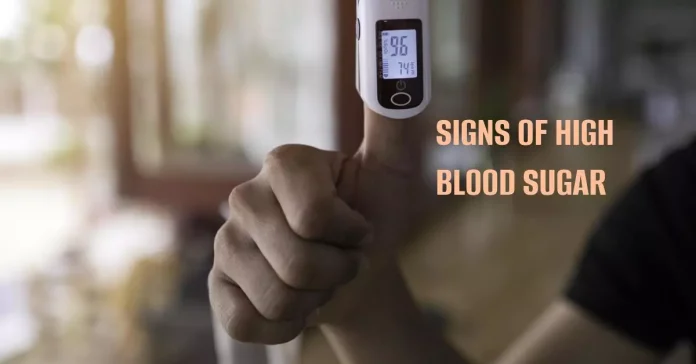Hey there! Our bodies are like finely tuned machines, and sometimes, they send us signals when things aren’t quite right. One crucial aspect to pay attention to is our blood sugar levels. Let’s dive into the warning signs your body might send if your blood sugar rises.
Signs to Watch Out For
Frequent Thirst and Hunger
Need help reaching for the water bottle non-stop? Or are you craving snacks all day long? These could be signs that your blood sugar is playing tricks on you.Persistent Fatigue
Were you feeling tired, even after a good night’s sleep? High blood sugar levels can throw your energy levels out of whack, leaving you drained.Blurry Vision
If the world starts looking a bit fuzzy, it might be a hint from your eyes that your blood sugar is on the higher side. Don’t ignore those visual cues!Slow Wound Healing
Notice that cuts and scrapes are taking longer to heal. Elevated blood sugar can slow down the body’s natural healing process.Increased Urination
Are you suddenly making more bathroom trips? Your kidneys might be working overtime due to higher blood sugar levels.
What Can You Do?
Now that we’ve familiarized ourselves with the warning signs, let’s delve into practical strategies and lifestyle adjustments that can effectively bring those blood sugar levels back to a balanced state.
Make Smart Food Choices
Choose whole foods such as fruits, vegetables, and whole grains. They release energy slowly, keeping blood sugar levels more stable.Get Moving
Regular exercise isn’t just good for your muscles; it helps regulate blood sugar too. Find something you enjoy, whether a brisk walk or dancing in your living room.Stay Hydrated
Water is your friend! It helps flush out excess sugar through urine and keeps you well-hydrated.Monitor Your Levels
Consider monitoring your blood sugar levels, especially if you’re at risk. Regular checks can help you stay ahead of any potential issues.
Frequently Asked Questions (FAQs)
How often should I monitor my blood sugar levels?
It is recommended to monitor regularly, especially if you have risk factors such as a family history of diabetes or other health conditions.
Can certain foods help lower elevated blood sugar quickly?
Foods with a low glycemic index, like leafy greens and whole grains, can help stabilize blood sugar levels. However, it’s essential to maintain a balanced diet and consult with a healthcare professional for tailored advice.
Are there specific exercises that are more effective in regulating blood sugar?
Both aerobic exercises, like walking or cycling, and resistance training can be beneficial. Choose activities you enjoy and aim for at least 150 minutes of moderate-intensity weekly exercise.
How can stress impact blood sugar levels?
Stress can elevate blood sugar levels. Implement stress-management techniques such as deep breathing, meditation, or yoga to help maintain balance.
Is there a link between blood sugar and family history?
Family history can contribute to elevated blood sugar levels risk. Regular monitoring and a healthy lifestyle are crucial if you have a family history of diabetes.
Are there specific signs that indicate a need for immediate medical attention regarding blood sugar?
If you experience extreme thirst, frequent urination, severe fatigue, or unexplained weight loss, seek immediate medical attention, as these could be signs of a more serious issue.
Can medications impact blood sugar levels, and should I inform my healthcare provider about them?
Certain medications can affect blood sugar levels. For proper management, informing your healthcare provider about all medicines, including over-the-counter and supplements, is crucial.
How can I incorporate healthier habits into my lifestyle to manage blood sugar?
Focus on a balanced diet, regular physical activity, staying hydrated, managing stress, and getting sufficient sleep. Small, consistent lifestyle changes can significantly impact blood sugar management.
What are the common symptoms of elevated blood sugar?
Common symptoms include increased thirst, frequent hunger, persistent fatigue, blurry vision, slow wound healing, and increased urination.
How can I prevent my blood sugar from spiking after meals?
Opt for a balanced diet with whole foods, incorporate fiber-rich choices, and consider portion control. Regular physical activity also aids in maintaining stable blood sugar levels.
When to Seek Help
If you notice these warning signs persisting, it’s time to chat with a healthcare professional. They can guide you on the best steps based on your unique situation.
Conclusion
Remember, your body has a way of letting you know when something’s up. Stay on top of your game by tuning in to these warning signs and making lifestyle adjustments. This way, you actively manage your blood sugar and experience peak well-being. Listen to your body, and here’s to happy, healthy days ahead!










